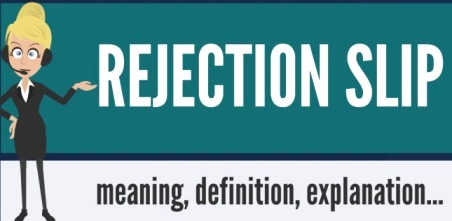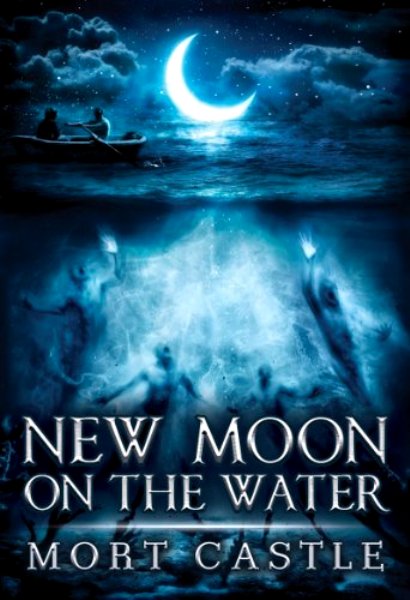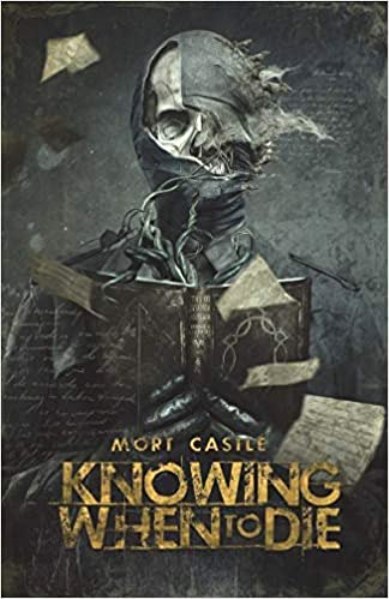

On this month's Special Page:
Mort Castle tells us all about his publication experience...including rejection slips
IN THE "SPECIAL PAGE" ARCHIVES:
Josh Malerman
Ellen Datlow
Bentley Little
Simon Clark
John Russo
Mark Lukens
REJECTION SLIPS AND HOW I LEARNED ABOUT THEM
by Mort Castle
Stage One—Becoming a Writer: My Not So Typical Story
You've heard this conventional wisdom: When you begin (trying) to write for publication, editors respond with rejection slips. You'll probably acquire 35, 75, 505, or 1,575,999 rejection slips before you see your first acceptance.
Not me.
I was in my junior year at Illinois State University.
A friend (a senior) was selling mediocre "men's interest" novels (some action, some softcore sex, about 35 to 40 thousand words) to a mediocre paperback publisher, earning mediocre advances. He said to me, "You could probably do this."
He was right.
ESP Attack was my first novel. Typed it up in three weeks, sent it off, got accepted and received a check for $300.
Three more novels followed. Advances ranged from $300 to $1,500.
The Writing Biz?
Nothing to it.
Stage Two
Then I graduated and got a job teaching high school.
I got married.
And I got serious and decided to focus on my writing, this time short stories. I didn't want to devote as much as two months or even more to writing a novel. I mean, that Russian novel, War and Peace, with its 1,225 pages, hey ...An epic like that probably took Leo Tolstoy three, maybe even four months. Me, I was too busy to carve out a lengthy sustained chunk of time.
I did my market study. I learned men's magazines were open to unsolicited manuscripts. Not that Big men's mag, Playboy, paying thousands of dollars for a short story, but the second and third tier men's magazines like Nugget, Escapade, Caper, Sir!. (These were nicknamed "dirty foot" magazines; many of the mostly or totally naked models were not all that assiduous in pedal extremity hygiene.) Perhaps surprisingly, sexual content, while permitted in Dirty Foot fiction, was not a requirement.
I typed (yes, on a typewriter: Smith-Corona electric portable!) a story. My first submission. Title: "Angels and Apes." Length: 5,000 words.
I had the proper format: Double-spaced.
The magazine destined to be graced by my first short story submission: Mr.. I found the editor's name on the mag's masthead: Everett Meyers.
I addressed a 9 1/2 x 12 1/2" manila envelope to Mr. Meyers. Inside, I placed my 21 page story. Behind it, the requisite SASE (self-addressed, stamped envelope) for the story's return if rejected.
It was early September.
Jump to early November.
The mail brings my SASE.
Oh, Fudge, sez me.
The SASE does not contain my story manuscript.
Instead, we have a rectangular shirt cardboard.
Paper-clipped to it is a slip of paper, but not a rejection!
It is an acceptance slip.
Accepted: "Angels and Apes."
Mr. Magazine, May issue.
Payment: $80 on Publication.
Wow! This is great!
$80? As a beginning teacher in a small town, I was earning $90 a week. My car payment came to $100. (I told you, we are talking history.)
I had it knocked!
I knew the system.
Write story.
Submit story.
Story gets accepted.
Money follows.
Yes! Yes! Put it in here, turn the crank, and there's your check.
Except, I did not sell another story for over a year.
Instead, I got rejection slips.
127 in a row.
The Rejection Slip Defined
Webster's New Nebbish's Dictionary defines "rejection slip" as: 1) an editor's savagely terse and utterly cold-blooded negative response to an author's manuscript; 2) a verdict of thumbs-down on a writer's written effort, probably also a condemnation of his intellect, personality, physical appearance, spirituality and genealogy; 3) an indication that a damned fool who thinks himself a writer will have better luck in the field of shoe sales, radio repair, gerbil rancher or Fotomat attendant; 4) what you get if you're not Stephen King; 5) an inevitability for you, as it is for (almost) everyone working at the scriveners' trade, and as it was and is for yours truly, Mort Castle, a publishing writer since Gutenberg gave me my first bottle of Sheafer's Skrip and said, "Onward into Futility!"
Ah, the "standard" rejection slip. Whether it's pixel or paper, it says ...
Thank you for letting us see your work.
We regret we will not be able to use it and wish you luck in finding publication for it.
Sincerely,
The Editor
Translating the Rejection Slip
It's in English, but requires translation if you are to get the real meaning--
Thank you for letting us see your work.
Can't tell you how much we appreciate your
casting your steaming pile of offal before us.
We regret we will not be able to use it ...
No doubt you are weeping tears warm and copious with
the regret you are experiencing for saying no to this steaming pile of offal
wish you luck in finding publication for it.
Luck? Hey, you could get lucky and there might be
a magazine seeking steaming piles of offal, in which case your steaming pile of offal will find a suitable home.
All right, let's Rosetta Stone the rejection slip. No matter how diplomatically or insensitively worded, the rejection slip means the venue you'd hoped would publish your writing will not be doing so.
It means ... Your writing is being rejected.
And that is all it means.
You need attempt to parse no subtle areas of interpretation.
Rejection Slip = No
The Basic Process
Let's review the basic submission process, which, despite technology, has changed little since the days when stories, poems, articles, and rants were written with pen provided by an unwilling goose's tail feathers.
Write it.
Submit it.
Wait.
And after waiting and waiting and waiting, you will get ...
A. An acceptance.
(Acceptance ... Victory!)
or
B. A Rejection.
(Rejection=Defeat!)
C. No response at all.
(Sadly, more and more common when everyone has learned how to ignore and/or trash months of emails.)
Becoming a Writer: My Not So Typical Story Continues
So I got hit by rejections.
I got hit by the "Singular Writer's Syndrome (SWS): Sure you got published once. It was a fluke. It will never happen again.
And here come the rejection slips. An older writer tells you, "You can use your rejection slips as motivation."
So I turn an entire wall of my office into a cork board. I develop a ceremony: Each time I receive a rejection slip, I push-pin it to the cork, while in a most devout, if secular way, I offer up a vow: Someday I will show you, you bastard.
Was I motivated?
Uh, not all that much.
Remember my mentioning the process?
A. An acceptance.
B. A Rejection.
C. No response at all.
Right. What about "B?"
B. is not a victory, but it is a long way from defeat.
B. is any indication of an encouraging response from a editor, a personal note which might be something as simple as...
There's potential here.
or...
You open in an engaging style. Se if you can maintain the energetically vivid scenes throughout the story.
Or
Not bad. Try us again.
That's what kept me going.
Not the editor saying, "Yes."
The editor saying, "Maybe someday. But you can be sure I wouldn't waste my time telling you this if I didn't think it to be the case."
And so, I eventually sold another story. Then another. Two "dirty foot" triumphs.
Of course, the SWS kicks in: You now have three stories accepted. One of them has already been in print. But what's three stories? That's nothing! Stephen King sells three stories before the water in the shower gets hot. You'll know you're a real writer when you have seven stories accepted ...
Time passes –
You'll know you're a real writer when you have 20 stories ...
Here is how you deal with SWS.
Stand in front of the mirror.
You see that SWS sufferer looking back?
Loudly and emphatically tell that person, "STOP IT!"
Then go on about your business: writing.
Which is what I did.
I met writers, editors, people working in various aspects of the writing craft(s) and sullen art(s).
And I learned rejection slips, what you must realize if editors and your very own self are not to drive you stark raving—"They're coming to take me away, ah ha!"—MAD!
Reasons for Rejection
Your story was rejected because ...
A) It was not properly formatted. First impressions count.
B) Your manuscript had errors in language usage and rhetoric.
Despite changes in formality levels for the writing world and society as a whole, real editors demand that manuscripts be virtually perfect mechanically if they are to be given serious consideration.
A writer must be a master of the basics.
I don't care if you have the imagination of Bradbury and the passion of Dostoevsky. If you goof the mechanics of the language, you will not get published.
C) Your story is simply not competently written.
Characterization is so thin your protagonist makes Casper the Ghost look beefy. The dialogue would have a place in an Iowa cornfield. The credibility of the story is roughly equal to your excuse to the boss about missing work for your grandfather's third funeral this year. The "It was all a dream ending," well, that wraps your series of cliches disguised as a plot. Etc. Etc. Etc.
D). Your work does not fit our needs.
I ran a small press for a number of years that published only poetry or fiction chapbooks by people under the age of 18.
I received a submission that was supposed to be based on traditional Finnish folklore, a sour but lengthy tale with many erotic scenes to give the reader more bang for the ...
Manuscript ran about 115,000 words.
E) It's a fine story, but ...
No kidding, we really enjoyed "The Cat Liked to Cha-Cha-Cha!" It's perfect for the beginning reader. The humor is actually funny.
But, you see, three months ago we published a story "Buttons Pavaroti: The Operatic Cat." And just the month prior to that we had "Shecky, The Comedy Cat." And, yeah, I see there's a Christmas story waiting to be in print called, "A Star for the Head of the Christmas Tree Cat."
Too many cats. This is a magazine called READ IT, Stories For New Readers. It's not called Cat Stories for New Readers.
F) Your story is really inspirational. Despite his handicap, a guy who's legally blind becomes a state high school wrestling champion.
The editor says, "no."
The editor has a kid who used to wrestle, but when a double leg take-down gave him a severe spine injury necessitating his being wheel chair bound for life ...
G) I'm rejecting it. I have no idea why, but I'm rejecting it.
Maybe it's because it's Thursday and nobody deserves to be happy on Thursday.
Your name, Harry, yeah, that was my husband's name, the name of the man with whom I spent two of the worst decades of my life until I dumped ...
Your manuscript gave me a wicked paper cut. You're supposed to put the blood in your work, not on me!
So I'd been at it a while and got to know Maurice DeWalt, that sharp-eyed and encouraging editor at Cavalier (not Playboy, but cleaner feet than most). I wrote a story called "Little Love, Little Hate," and thought it perfect for DeWalt's tastes. It was nostalgia, about an unscrupulous producer in Hollywood's early days, and an all midget troupe of thespians ...
It took less than two weeks to be rejected.
Not a word as to why. That yucky standard issue, pre-printed rejection slip.
Almost a year later, I had a nice note from DeWalt. He hadn't seen anything of mine for a while (I was working on novels--which didn't sell, either). Did I have anything that would be right for Cavalier.
I sent him "Little Love, Little Hate." Brief note:
This was rejected last year. If you could give me some advice as to problems, I'd be glad to revise it.
Note came back: No revision necessary. It's perfect for us. Don't know why I rejected it first time round.
The Final Word
And so, you learn rejection slips. You study the conventional wisdom and you develop your own protocol of keeping on despite rejection.
And every so often, you come upon an experience like this that helps:
I wrote a 1,000 word story called "Party Time." It was published in 1984 in the very first volume of J.N. Williamson's acclaimed Masques anthologies. I was paid $100.
The story had been written in 1972. Before it got to the right set of eyes and the right imaginative vision, it was rejected 99 times.
And then ...
The story has not been out of print since 1984. It's been translated into a dozen foreign languages. It has been adapted for comics and readers' theater and has been filmed as a short subject by two different student filmmakers.
I want to go Biblical for the gravitas I think this apocryphal mini-tale deserves.
"The stone that the builders rejected has become the cornerstone; yeah, even the chief cornerstone of the temple."
Or ...
"Damn the rejection slips, full speed ahead!"
About Mort Castle

A former stage hypnotist, folksinger, and high school teacher, Mort Castle has been a publishing writer since 1967, with hundreds of stories, articles, comics and books published in a dozen languages. Castle has won three Bram Stoker Awards®, two Black Quill awards, the Golden Bot (Wired Magazine), and has been nominated for The Audie, The Shirley Jackson award, the International Horror Guild award and the Pushcart Prize. In 2000, the Chicago Sun-Times News Group cited him as one of Twenty-One "Leaders in the Arts for the 21st Century in Chicago's Southland." A feature film based on his novel The Strangers is currently in development by New Zealand's Light in the Dark Productions. Castle and his wife, Jane, will celebrate their 50th wedding anniversary July 4, 2021, years and live in Crete, Illinois.


